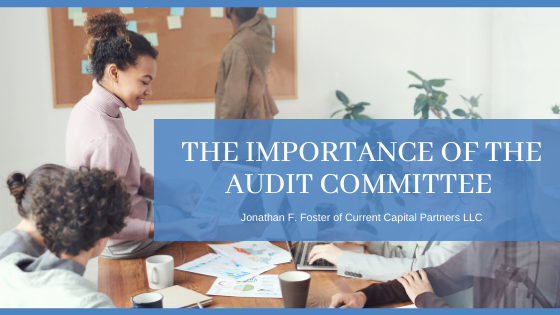Effective governance includes a board of director’s ability to play a role in helping to maximize long-term shareholder value. In general, a board’s primary responsibilities are to oversee management, strategy, and financial reporting and compliance.
Audit committees are one of the most critical ways that boards help oversee financial reporting (and often compliance) and help manage risk. This committee often puts procedures in place to monitor the accuracy of financial disclosures, the effectiveness of risk management systems, and compliance with regulatory requirements as well as a company’s code of business conduct.
A “best practice” is for the internal and independent auditors to report directly to the audit committee. The NYSE and NASDAQ have requirements for audit committees that include standards for financial literacy, definitions for conflicts of interest among committee members, and the scope of the audit committee’s charter.
Typically, once per quarter before the Form 10-Q is filed, an earnings press release is finalized and a conference call with investors is held, the audit committee has a meeting with the senior accounting, tax, compliance, and internal and external audit executives to review, among other things, significant issues in the quarter as well as the draft SEC filing, press release and conference call materials. These conversations may also include discussion of emerging technical and regulatory issues that have the potential to impact future financial statements.
The audit committee is sometimes responsible for overseeing enterprise risk management or the company’s effort to identify and minimize specific risks. These threats may range from input or market prices changing dramatically to the loss of one or more facilities to significant regulatory changes due to a dramatic shift in the economy. For instance, if cybersecurity is deemed an enterprise-wide risk, a plan to mitigate this risk should be established, executed, and monitored.
As indicated above, both the internal and external audit functions should report directly to the audit committee to ensure objectivity and to minimize conflicts of interest with management. The NYSE requires that the audit committee oversees the internal audit function and reports on its performance to the board. Expectations for internal audit oversight may vary but generally include the monitoring of financial, operational, and compliance controls, investigations as needed (regarding allegations of theft and related problems), and coordination with and assistance to the independent auditors.
The audit committee is required to make certain disclosures about its findings following each annual audit. Also, voluntary disclosures on topics such as considerations for appointing an auditing firm and evaluation of external auditors have been on the rise in recent years. This indicates that committees are responding to changing expectations from stakeholders. With increased attention to ESG factors, audit committee disclosures may well increase in the coming years.
Jonathan F. Foster
Founder & Managing Director – Current Capital Partners LLC

